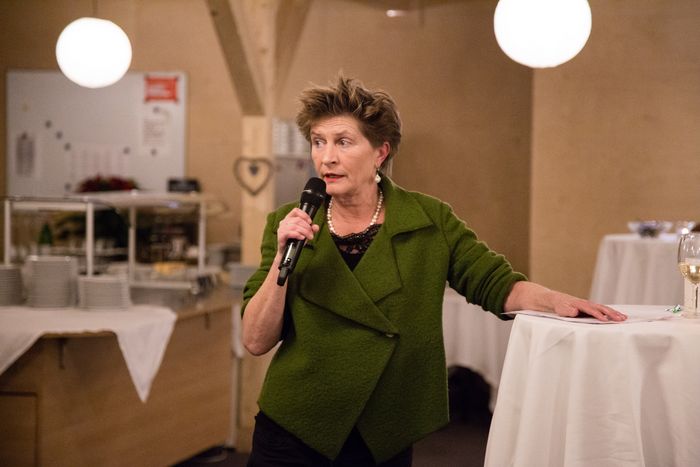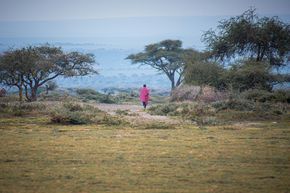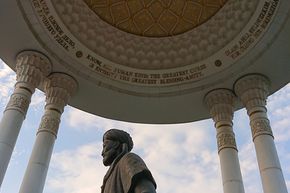by Lea Thin
Christine Plüss has been active in the tourism sector since the 1970s – first as a tour guide and later as the long-time Managing Director of the Swiss Working Group Tourism & Development (akte). Today, she continues to advocate for a global, solidarity-based perspective on tourism.
What opportunities does networking between organizations from the Global North and the Global South create?
There is no serious critical tourism work without this exchange at all. Civil society organisations must collaborate – those from countries where trips are planned and sold, together with those in the regions hosting tourists. Only together can we identify both the problems and the opportunities. Neither politics nor the tourism industry can take on this role; they often aren’t interested in the broader consequences tourism has for local populations.
How can such networks exert political influence and drive change?
Civil society organizations provide a vital counterbalance to the powerful tourism industry. They have repeatedly brought important issues into political and economic debates – often successfully. Some of our most rewarding moments were when decision-makers actually responded to our initiatives. Ultimately, only those in business and politics can steer tourism development in a more responsible direction. Yet today, many organizations face shrinking budgets or complete funding cuts. Fewer civil society actors advocate on critical tourism issues, which is alarming, because only their voices ensure that the interests of vulnerable communities are heard.
Have you experienced moments that confirmed the value of this collaboration?
Absolutely – many moments. Without North-South networks, for instance, there would have been no campaigns against child exploitation in tourism. Structures developed through these networks still have an impact today. Protests against large tourism projects in Goa or Phuket also raised awareness that tourism doesn’t automatically benefit everyone and often harms local populations. These experiences laid the groundwork for today’s movements against overtourism. These achievements are a direct result of intensive, collaborative networking.
Tourism issues are no longer purely a development question. Can you elaborate?
Tourism used to be largely seen as a development issue: people from the Global North traveled to the Global South, where negative consequences became visible. Today, these mechanisms occur globally – even in cities like Barcelona or Venice, where residents’ rights are often ignored for tourism revenue. Funding for critical tourism work is also increasingly scarce. We need new sources of financing – from climate policy funds, economic support for tourism projects, and even from the tourism industry itself, which must safeguard the sustainability of its offerings. Above all, the rights of disadvantaged people must remain central, whether in the South, European cities, or mountain regions. Awareness-raising and political engagement are crucial in the places from which tourists come and where decisions are made. Anything else would be a dangerous step backward.
What role have churches played in this work?
Historically, churches were central in the tourism debate because of their global presence and their advocacy for intercultural understanding and the rights of disadvantaged people. They acted as a bridge between North and South. Today, however, if churches and development actors remove tourism from their agendas due to funding shortages, it sends a worrying signal. Tourism continues to grow – along with its negative consequences.
Resources in North-South networks are often unequal. How can fair collaboration succeed?
Resource imbalances exist, but in the 1980s and 1990s, some Southern partners even had more resources than Northern ones, partly due to tourism lobbying here. Overall, Northern organizations usually had more financial flexibility. TourismWatch, in particular, remained a strong pillar, while other organizations struggled to find resources or moved into tour operations. Transparency is key to addressing unequal power dynamics. Conflicts will happen, but openly acknowledging them allows advocacy networks to operate on equal footing.
How has digitalization changed international collaboration?
The difference compared to earlier times is huge. We used to rely on letters or faxes – if our partners even had a fax machine. During travel, we sometimes hand-delivered letters and money. Today, Zoom and webinars allow us to connect people globally. Especially during the COVID-19 pandemic, I experienced how enriching this can be. It doesn’t replace physical meetings, but it enables participation for many who otherwise couldn’t be involved.
Looking ahead to 2030 – what changes would you like to see in tourism?
By 2030, I hope there will be less thoughtless ‘jetting around.’ Realistically, civil society networking must continue, as it is essential for fairer tourism. Currently, many Northern and Southern civil society voices have fallen silent due to lack of resources. Meanwhile, other pressing issues dominate: militarization, wars in Europe, Gaza, and Sudan, and increasingly restrictive migration policies at home. Tourism continues, often pursued by those who can afford it, regardless of the impact on the planet, climate, resources, or local communities. This makes strong civil society organizations even more vital – working across borders, promoting openness, and ensuring tourism no longer grows at the expense of the most vulnerable, but genuinely benefits them.
Note: Documents from over 40 years of the Working Group Tourism & Development (akte) and its diverse networking efforts were handed over by Christine Plüss to the Swiss Social Archives in Zurich upon her retirement at the end of 2019. The holdings are listed in the archive and available for on-site consultation. The Working Group Tourism & Development was renamed fairunterwegs in 2020. More information: https://fairunterwegs.org/ueber-uns/geschichte/ (German only).






